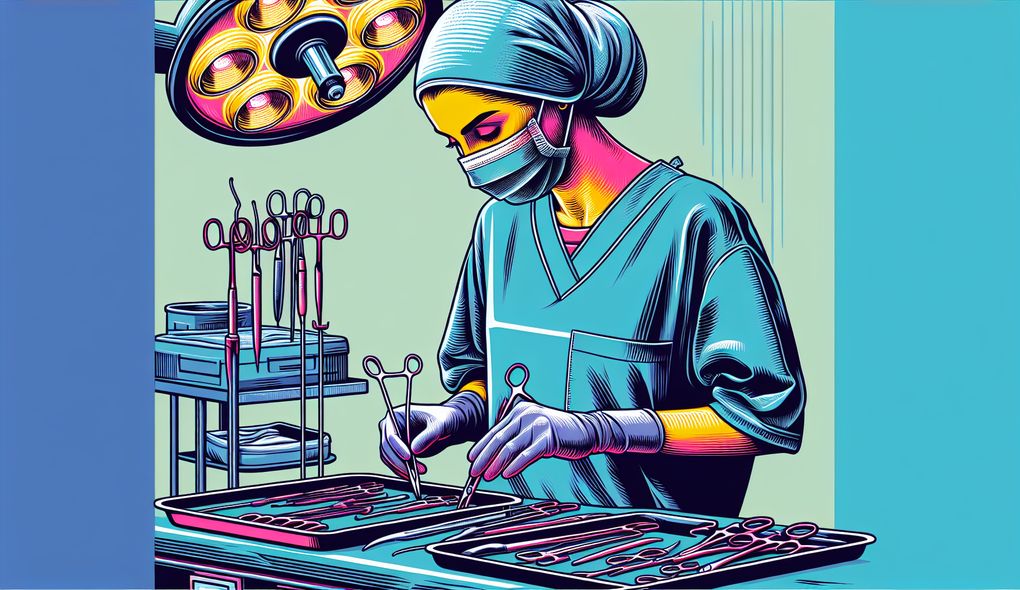What is your process for documenting patient interactions and surgical interventions?
SENIOR LEVEL

Sample answer to the question:
Well, for documenting patient interactions and surgical interventions, I usually take detailed notes during the surgery and right after, while it's still fresh in my memory. I make sure to include key info like the type of surgery, any complications, and the patient's response. Then I input all these details into the electronic health record system. And for patients, I jot down important stuff from our chats, like their concerns or any symptoms they mention. I've been doing this for quite a few years now, so it's pretty much second nature to me, you know?
Here is a more solid answer:
When it comes to documenting, I've established a clear process to ensure thoroughness and accuracy. During surgeries, I focus on noting key details, including the surgical techniques used, any unforeseen issues, and how the team addressed them. I actively ensure that the documentation reflects the high level of care provided, as well as any nuances specific to the patient's situation. After the procedure, I promptly update the patient's electronic medical records, emphasizing clear communication to support continuity of care. My experience has taught me the value of precision in documentation; it's critical not only for the patients' ongoing care but also for legal and educational purposes.
Why is this a more solid answer?
The solid answer builds upon the basic response by adding clarity and incorporating aspects of the job description like attention to detail and problem-solving. It touches on the importance of documentation for legal and educational reasons, implying a commitment to professional development. The answer, however, could further reflect how a nurse's critical thinking aids in anticipating patient needs and adjusting documentation practices accordingly.
An example of a exceptional answer:
My approach to documentation is meticulous and proactive. I start by reviewing the patient's chart to familiarize myself with their medical history and any past surgical encounters. During the intervention, I take notes in real-time, capturing the surgery's chronology, specific instruments used, changes in patient vitals, and the team's responses to any complications. This ensures a comprehensive record that aids in postoperative care. Afterwards, I meticulously transcribe this information into our electronic health record system, keeping in mind that this data might be crucial for multidisciplinary team collaborations or future patient care plans. Reflecting on each case, I actively seek feedback and use that to refine my documentation to best support patient outcomes and contribute to evidence-based practice discussions within our surgical teams.
Why is this an exceptional answer?
The exceptional answer delves deeper into the pre-surgery preparation and post-surgery follow-ups, showcasing critical thinking and advanced knowledge of surgical proceedings. It also demonstrates an understanding of the importance of interdisciplinary communication and an ongoing commitment to professional development, thus aligning closely with the job description particulars.
How to prepare for this question:
- To prepare for discussing your documentation process, review current best practices in health record management and consider how your process aligns with these standards. Familiarize yourself with the latest electronic health record systems and any updates, as technology is consistently evolving.
- Reflect on past cases where precise documentation played a key role in patient outcomes. Be ready to discuss how your attentiveness to detail and critical thinking enhanced patient care. Consider discussing a time when documentation helped resolve a complication or facilitated a successful surgical procedure.
- Think of examples that demonstrate your collaboration with interdisciplinary teams, highlighting your communication skills. Discuss how your documentation process empowers continuity of care and supports the collective effort for a positive patient experience.
What are interviewers evaluating with this question?
- Excellent communication and interpersonal skills
- Critical thinking and problem-solving abilities
- Advanced knowledge of surgical instruments and procedures
- Commitment to continuing education and professional development

